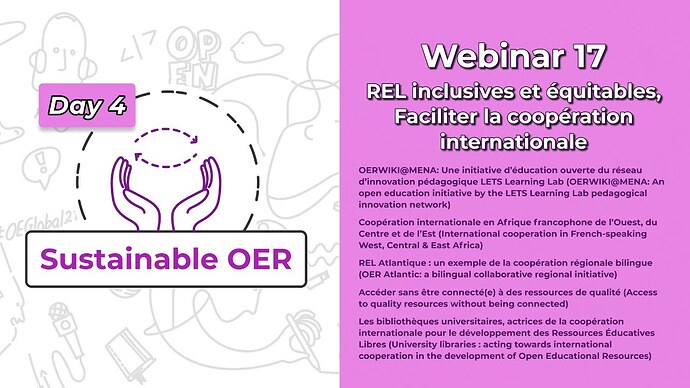Victoria Volkanova (Université de Moncton)
Fondé et subventionné par le Conseil des bibliothèques universitaires de la région de l’Atlantique1 (CAUL-CBUA, Canada), le projet OER Atlantic-REL Atlantique offre aux personnes enseignantes et étudiantes de la région, une plateforme d’hébergement et de création de ressources éducatives libres (REL). Issu des recommandations et des actions de plusieurs comités et groupes de travail qui se sont penchés sur le sujet de l’éducation ouverte dans les dernières années, et propulsé vers son implantation hâtive pendant la pandémie, le projet s’est concrétisé à l’été 2020, afin d’offrir la possibilité aux champions de l’éducation ouverte de la région d’adapter et de créer du matériel pédagogique libre d’accès, ouvert à tous, avec du contenu à jour et adapté aux besoins de leurs cours.
Le réseau OER Atlantic-REL Atlantique utilise la plateforme Pressbooks et offre aux institutions post-secondaires de la région un accompagnement technique, des possibilités du financement pour leurs projets de création ou d’adaptation du matériel pédagogique, des personnes-ressources dans chaque institution, des sessions de formation, ainsi des activités de sensibilisation et de mobilisation.
Dans cette présentation, nous vous présenterons le cheminement, les réalisations et les plans futurs de ce projet REL collaboratif régional.
1 Les provinces de l’Atlantique sont : la Terre-Neuve-et-Labrador, le Nouveau-Brunswick, la Nouvelle-Écosse et l’Île-du-Prince-Édouard. L’Université de Moncton, forte de ses quelque 4 500 étudiantes et étudiants, est la seule université francophone de la province du Nouveau-Brunswick et une des deux universités francophones de la région.
Founded by the Council of Atlantic University Libraries (CAUL-CBUA, Canada), the OER Atlantic-REL Atlantique initiative offers university teachers and students of the region a platform for hosting and creating Open Educational Resources (OER). Based on the recommendations and actions of several committees and working groups that have explored the subject of open education in recent years, and propelled towards its hasty implementation during the pandemic, the project came to fruition in the summer of 2020 in order to provide the region’s champions of open education with the opportunity to adapt and create openly licensed teaching and learning materials, with up-to-date content and adapted to the needs of their courses.2
The OER Atlantic-REL Atlantique network uses the Pressbooks platform and offers its post-secondary institutions technical support, funding opportunities to support the creation and adoption of open educational material, a resource person in each member institution, as well as training sessions and advocacy support.
In this presentation, we will present the journey, achievements, and future plans of this regional collaborative OER initiative.
2The Atlantic provinces are Newfoundland and Labrador, New Brunswick, Nova Scotia, and Prince Edward Island. The Université de Moncton, with its 4,500 students, is the only French-language university in the province of New Brunswick and one of the two French-speaking universities in the region.
This presentation is part of Webinar 17 REL inclusives et équitables, Faciliter la coopération internationale taking place in your local time 2021-09-30T14:00:00Z → 2021-09-30T16:30:00Z
Webinar Access (registered conference participants only):
![]()
![]() Go to Webinar 17
Go to Webinar 17
UNESCO OER Action Areas::Inclusive and equitable OER, Facilitating international cooperation
Language: French
See the other presentations that take place in this webinar.
Presentation Recording
Participate
Before the webinar the authors will be asked to reply below with links to their presentation materials, related videos, and other relevant links, as well as prompts for discussion here.
For anyone that missed the live session, an archive will be posted here as soon as possible.
Conference participants are urged also to reply below with questions, comments for the presenters or to share related resources.
